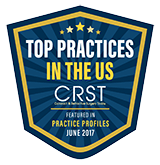Seeing your eye doctor for regular appointments is as important as going to the dentist or having your physical. These eye exams help ensure that your eyes are healthy and stay that way.
Going to the eye doctor is the only way to ensure your eyes are healthy. How often you need to go depends on a few factors. Your ophthalmologist can tell you if you need an exam every few years or if you need them annually.
You should also see your eye doctor if you have any visual problems or concerns about your eyes. But before you go in for your appointment, whether it’s for a routine exam or not, there are some things your eye doctor will want you to know. Keep reading to learn 6 things your eye doctor wants you to know before your next appointment!
1. Know Your Medical History
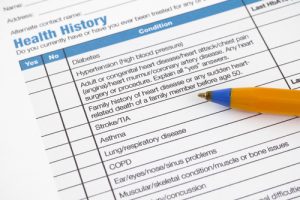
A crucial component of any successful eye exam is your family medical history. It can seem challenging to keep track of your medical history, but it’s necessary.
Before your appointment, familiarize yourself with any necessary information about your parents and grandparents. There’s a good chance that your eye doctor or a staff member may ask about them during your exam.
Be aware of your family’s eye conditions like glaucoma or age-related macular degeneration. You can also sign release papers with your primary physician to have your medical records sent over before your appointment. You may still need to verify any information even if these get sent.
Certain medical conditions increase your risk of developing eye conditions, especially if you’re over 40. You’re also at higher risk for eye conditions that run in your family.
It’s good to know if your parents and grandparents ever had certain eye conditions like glaucoma, macular degeneration, or diabetic retinopathy, amongst others. Knowing your risk for certain eye conditions helps your eye doctor know how often you may need eye exams.
Many age-related eye conditions present no symptoms in the early stages. Early detection is the only way to treat these eye conditions before they result in irreversible vision loss.
2. Regular Eye Exams Can Save Your Vision
Your age and risk level for certain eye conditions is a large part of how your opthalmologist determines how often you need to schedule eye exams. If you’re at higher risk, you may need them more frequently.
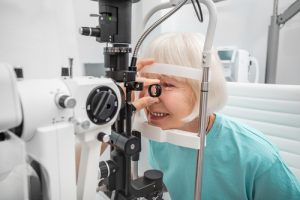
If you’re over 55 and don’t exhibit any other risk factors, you’ll still need to see your eye doctor for annual eye exams. This age range is right around when many age-related eye conditions start developing.
These regular eye exams are essential because many age-related eye conditions are impossible to detect in the early stages without an eye exam. Eye conditions like glaucoma, macular degeneration, and diabetic retinopathy don’t have any discernible symptoms until they begin to cause vision loss.
This vision loss is irreversible. Treatment can slow the progression of these eye conditions, but it can’t repair any lost vision.
That means any vision loss due to these conditions is permanent and irreversible. Once it’s gone, it’s gone for good.
That’s why regular eye exams are so important. They can detect the early signs of these conditions before you’ve experienced any visual problems. When spotted early, treatment can slow and even prevent further damage so you can preserve your vision for years to come.
3. Always Report Any Vision Loss
If you ever experience any visual problems, you should tell your eye doctor as soon as possible. Changes to your vision can signify something serious or simply a way to know that your prescription needs updating.
Even if the problem resolves itself, you should at least mention any temporary vision loss at your next scheduled eye exam. Since many eye conditions cause irreversible vision loss, it’s critical to act quickly as soon as you spot any persistent visual problems.
4. Even Minor Eye Irritation is Important to Mention
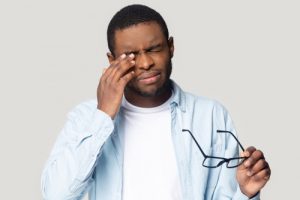
If your eyes are frequently irritated, you should mention this to your eye doctor. Frequent eye irritation is not typical, even if visual problems do not accompany it.
Inflammation in and surrounding the eye can occur for several reasons and affect how healthy your eyes are. Your eye doctor can help you find the source of any chronic eye inflammation and recommend treatment accordingly.
5. Don’t Forget Sunglasses

The sun may feel nice, but it constantly emits UV rays whenever you’re outside. These rays are harmful to both your skin and your eyes.
Like you should wear sunscreen to protect your skin, you should wear sunglasses outside to protect your eyes. Your eye doctor will want you to use sunglasses regularly, but they may also want you to have sunglasses on hand for your appointment.
During your comprehensive eye exam, they may dilate your pupils with eye drops so they can examine your retina. This process is simple and painless, but dilated eyes are more sensitive to light, so you may want a pair of dark sunglasses to wear after your appointment.
6. Eye Exams Are Collaborative
Your eye doctor wants to help you maintain your healthy vision. But to do that, they need to know a lot about you, and it’s up to you to disclose all relevant information.
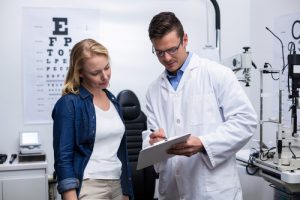
That includes your medical history and any problems with your vision or eyes that bother you. It’s also important your eye doctor knows if you’re a tobacco user, as smoking can increase your risk for eye disease. Be open and honest; you can expect the same from your eye doctor.
Are you ready to make your eyes a priority? Schedule an appointment at Williamson Eye Center! With convenient eye clinic locations in Baton Rouge, Denham Springs, Gonzales, and Zachary, LA, we’re here to make eye care accessible to everyone!



